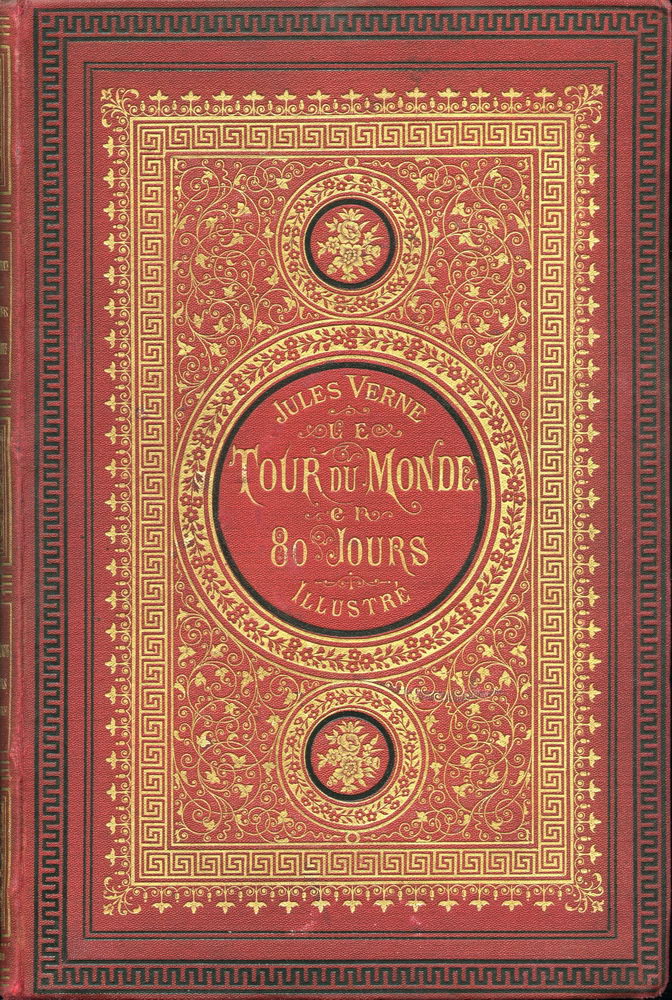What good memories I have from the original film
of "Around the world in
80 days" by Jules Verne... All the
colours, the sites, the excitement, the adventure! Both as a teenager and as an
adult, I've thoroughly enjoyed the whirlwind travel of Fogg and Passepartout...
For my Classics Club, I wanted to read the book
as well, to see how Verne had interpreted all these elements in writing.
Also, because I've read other books of his that tend to be futuristic, I
was curious to see how he would tackle a non-futuristic subject...
We enter in the life of Phileas Fogg, an
Englishman whose daily routine must not be varied:
"If to live in this style is to be eccentric, it must be confessed that there is something good in eccentricity"
Thus starts a long series of descriptions and
assessments as to the British superiority - and while I would consider
myself an Anglophile, I have to admit it got to my nerves before long. I
accept the fact that in that time (1873), the British Empire
was still powerful and everyone would perhaps consider it a privilege to
"learn" from the best. Still, Verne, a Frenchman, fills the book with
so many passages praising the British (and degrading everyone else) that I soon
lost my good humour...
Fogg and the members of the Reform Club discuss a
subject that has made headlines: travel around the world in eighty days -
can that be feasible?
"If the thing is feasible, the first to do it ought to be an Englishman"
Fogg enters in a wager with his fellow club members for
20.000 pounds .
He starts his journey immediately with poor Passepartout, his valet of
one day, by his side. They start their journey unaware that Fix, a Scotland Yard detective, follows them, on suspicion that Fogg actually a bank robber is.
From here on the descriptions should have been
really exciting - how they encounter difficulties, how they manage nevertheless
to overcome them, what they see in the different locations. But I
was to be disappointed - Verne fills the book with very long descriptions of secondary parts, with no impact whatsoever on the story, that soon become boring:
"She was a large paddle-wheel steamer of two thousand five hundred tons, well-equipped and very fast. The massive walking-beam rose and fell above the deck. At one end a piston-rod worked up and down. At the other was a connecting-rod which, in changing the rectilinear motion to a circular one, was directly connected with the shaft of the paddles"
I could not find any excitement, not even when
they rescue Aouda from her certain death. Everything that happens is not
terribly convincing (British phlegm?) so that the book reads more like a
personal journal and not an account of one of the most dangerous and exciting
travels.
Wherever Fogg arrives, there is a constant
reminder of the British superiority: there is "the wise policy of
the British Government", the locomotive is "guided by an English
engineer and fed with English coal", while the Hindu faith has
"horrible practices" and there are "bands of ferocious
Indians" where they go. Even Aouda, an Indian, is "as fair as a
European" and has "received a thoroughly English education"...
No, it was not at all what I had expected - the
book has a different perspective of the same travel I had come to identify as
one of the best films I've enjoyed. While I could give some credit to the
time the book was written, still I cannot with my present-day mind enjoy it.
I guess I'll still have the film...

No comments:
Post a Comment